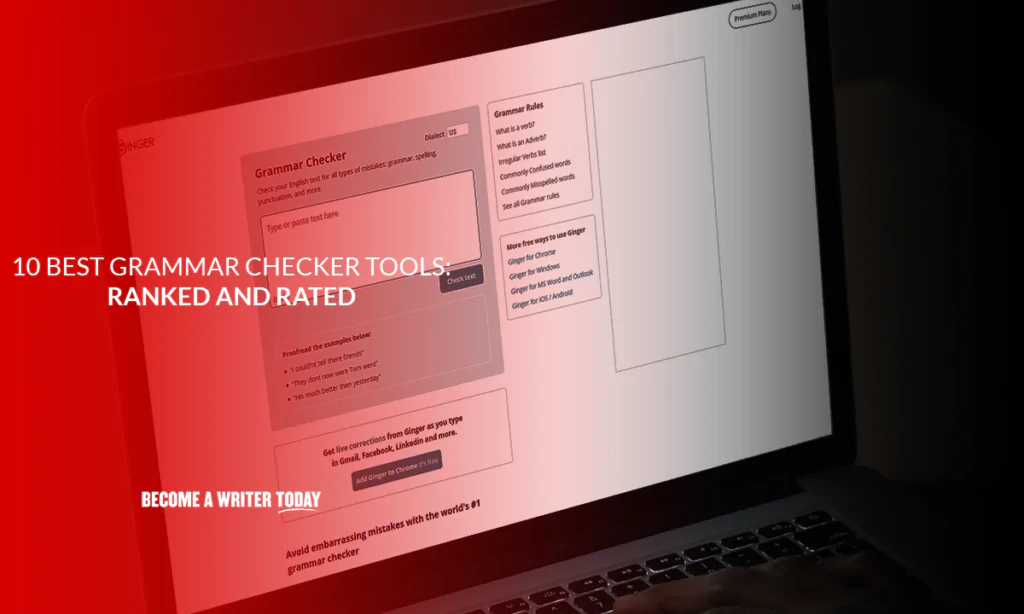Want to Write Online?
As Seen On

Writing Software Reviews
We try and test the best writing software and apps. Read some of our popular reviews.
Writing Resources
Watch, listen and learn from podcasts, videos and courses about the craft of writing from Become a Writer Today.
YouTube
Watch our videos packed full of writing advice, software reviews, tips, interviews, and book-round-ups on our channel. ⏯️
Courses
Get help with writer’s block, self-publishing, and earning more money as a writer in these popular courses. ✍️
Podcast
Listen to interviews with New York Times best-selling authors and other top writers. Get practical advice that works. 🎧
Writing Blog and News
Our team of expert writers publishes practical advice about the craft of writing.
Grammarly Free vs Premium: We Compare Both
Are you thinking about using Grammarly? Learn more in this post and pick between the…
24 Best Grammarly Alternatives: Reviews & Pricing
Are you looking for Grammarly alternatives or proofreading software that will transform your writing into a…
110 Thinking Quotes to Transform Your Mind
We give you over 100 quotes about thinking that can help you unlock positive and…
130+ Synonyms for Important All Writers Should Know!
Discover our guide with synonyms for important to use when you’re looking for other words…
How to Focus When You Keep Getting Distracted
Learning how to focus is essential if you want to find success both with creative…
12 Best Political Fiction Authors on Your Must-Read List
Interested in political fiction? If so, these best political fiction authors are some you simply…

Writing Advice That Works
Our team has written thousands of articles covering all types of writing, book genres, niches, tools, famous authors, and the written word. You can start your writing journey today.

Need Writing Software?
We regularly review and profile the best writing tools, apps, grammar checkers, and AI writing software, so you can find one that works best.

Great Books
Our team of writers has read and reviewed the best books and authors across various genres. Never run out of items for your reading list.








